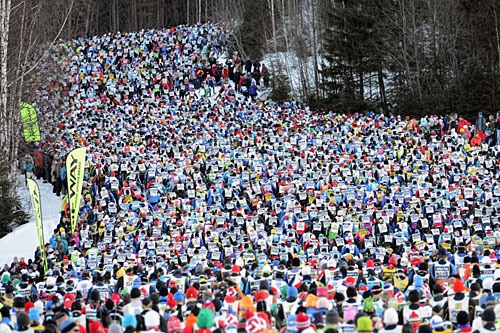
Tomorrow, the world’s longest cross country ski race takes place in Sweden. Called Vasaloppet, it entails participants skiing 90 kilometers from start to finish. It’s an extremely popular international race, which can take up to 12 hours to complete, and which is broadcast live on tv. When tickets to participate are released, they sell out in 15 minutes – it’s that popular.
The first Vasalopp was in 1922 and it takes place annually, the first Sunday in March and it is an early sign of spring. It’s an amazing sight to watch, as more than 15,000 mad, happy skiers glide along – the swishing sound of ski on snow filling the air.
For the elite athletes, 12 hours to complete the race is of course unthinkable. They go considerably faster, in around 3 hours 40 minutes, roughly 25 km per hour.
So why is this race called the Vasalopp? Well, it takes its name from a Swedish king called Gustav Vasa. The race is said to commemorate his escape to Norway, through the forests, in 1521. Legend has it that he carried out the gruelling journey on skis, but experts believe he more likely completed this escape on snow shoes.
Nevertheless, out of this legend sprung the race which is so popular today.
Modern day skiers don’t see the experience as an escape, they see it as a challenge and for many of them it’s a rite of passage.
And as you sit watching the TV comfortably from the sofa, with tea and toast, you take vicarious pleasure in this long, amazing Swedish race. If you’d like to check it out, you can watch it on http://www.svtplay.se from 7.00 CET. I’d advise you to not miss the very beginning, as it is then you understand the number of participants.
















